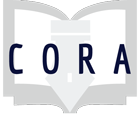Assignment
Open Access: Strategies and Tools for Life after College
The “Open Access: Strategies and Tools for Life after College” workshop was developed to give students the tools to continue academic research after graduation. Students may not recognize that the library provides many electronic resources for their research that is automatically given to them during their enrollment; by acknowledging their privileged access to information, they are prepared to be responsible researchers beyond campus. The workshop was requested by international students who were concerned about losing access to LMU resources when they returned home.
1. Students will be able to define the following terms: open access, paywalls, and information privilege.
2. Students will appreciate the impact of open access scholarship and it’s benefit to the public good.
3. Students will be able to search the appropriate open access tool in order to find free scholarly content.
Information Literacy concepts:
Individual or Group:
Ability Level:
This workshop was created for the Summer Undergraduate Research Program (SURP). Faculty mentors and Librarians hold workshops and seminars throughout the summer to help SURP students build their research and presentation skills. Three international students suggested the workshop topic! They wanted to know more about ResearchGate and how to find free scholarly information once they left LMU.
Further Readings
"Information Privilege Outreach for Undergraduate Students" by Sarah Hare, Cara Evanson.
https://crl.acrl.org/index.php/crl/article/view/16767
You’re a Researcher Without a Library: What Do You Do? by Jake Orlowitz.
https://medium.com/a-wikipedia-librarian/youre-a-researcher-without-a-li...
Originally, the workshop was scheduled for 1 hour. Next year we would like to schedule a longer 1.5 hour workshop or assign the case study article as homework. Technology was an issue too. There’s no way to “turn off” database access (or turn off Information Privilege) while on campus. It’s difficult to simulate an Open Access Only environment so that students could practice using OA tools and strategies. We tried with Google Scholar and PubMed by turning off the “Library links” settings. Also we asked the students to pretend or imagine that they didn’t have access.

